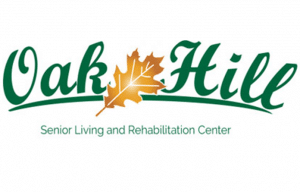County talks tax bills, Oak Hill
The wait for property tax bills in 2023 is almost over, according to Monroe County Treasurer Kevin Koenigstein.
During Monday’s meeting of the Monroe County Board of Commissioners, Koenigstein reported the bills are now in the Monroe County Clerk’s Office, where percentages and ratios for various taxing entities are being calculated and verified.
Monroe County Clerk Jonathan McLean said he is hopeful his office can certify the bills and send them to the treasurer’s office by the end of this week.
Koenigstein said once his office has the bills, he anticipates having them ready to be mailed by Oct. 18, barring any setbacks.
If that is the case, Koenigstein said tax bill due dates will be late November and late December.
He also reported preliminary numbers indicate an increase in assessed valuation of approximately $73 million for Monroe County.
In 2022, the assessed valuation topped $1 billion for the first time, and that number will be closer to $1.1 billion this year for properties in Monroe County.
During the Sept. 25 county board meeting, Koenigstein updated commissioners on the current county budget.
By the end of Fiscal Year 2023, Koenigstein said the county should have a revenue excess of $1 million above projected expenses for the general fund using the “accrual method,” which accounts for expected income prior to its actual receipt since the final property tax payments will not be received until late December.
The county’s new fiscal year begins Dec. 1.
Koenigstein also noted most departments are currently operating within or below budgeted expenses.
He pointed that interest on county savings investments continues to be very strong, but added revenue for recording fees in the county clerk’s office are down, due in part to people not refinancing mortgages because of the high interest rates.
One department which will end the current fiscal year with a significant deficit is Oak Hill, the county-owned senior living and rehabilitation center on Hamacher Street in Waterloo.
The year-to-date financial summary for the facility presented to commissioners last week by Oak Hill Administrator Shari Kruep shows a current “operating” loss of nearly $1.1 million.
Kruep explained the operating revenue is based on occupancy for the facility’s three main operations: the skilled nursing care wings, Magnolia Terrace independent-living apartments and Evergreen Pointe rehabilitation center.
Despite a recent increase in occupancy for the apartments, the combined net losses for skilled nursing and Magnolia Terrace are $608,023 and $165,018, respectively.
Currently, Evergreen Pointe is the only profitable unit with a combined net income of $259,638 for the year.
The “combined net” line of operating and non-operating revenue and expenses for the entire facility currently stands at a loss of $513,403, over five times the end-of year loss of $96,489 in fiscal year 2022.
Non-operating revenue includes income such as county funding from property taxes, grants and other state aid.
When asked by McLean about her outlook on current and expected “challenges,” Kruep pointed to staffing issues as the main driver of increased expenses.
In addition to negotiated pay increases for Oak Hill employees, Kruep said the facility continues to rely on expensive “agency” services to provide nursing staff as needed – an occurrence reported to commissioners throughout the year.
“August was bleak in hiring people because people were still on vacation,” Kruep reasoned, although she said Oak Hill has “seen an uptick in hiring people in September.”
Commissioner Dennis Knobloch commented that skilled nursing appears to be an issue “across the board” in the industry, pointing out the recent strike by SSM Saint Louis University Hospital nurses.
One of the main reasons for this strike was to protest the lack of nurse retention at the hospital, echoing concerns at Oak Hill.
With revenue not meeting the increased staffing cost in Waterloo, Kruep said she is looking at the possibility of raising rates for residents about 5 percent.
Kruep said rate hikes “are kind of becoming the norm,” not only due to staffing issues, but price increases in the cost of “food and other things.”
McLean said the significant losses “should definitely be a conversation during budget time,” adding, “It’s getting harder to make money at this business. It used to be called the ‘cash cow,’ but I don’t know if that’s the case anymore.”
Kruep said much of her focus will be on keeping census numbers up, and she expects to have a proposed budget ready for presentation later this month.
At last week’s meeting, Kruep also reported a “full-blown COVID outbreak” at Oak Hill, with 31 residents and four employees testing positive for the virus.
Although she said there was “no significant illness” with the recent outbreak, planned Oktoberfest activities were canceled and employees are “back to masking.”
When asked if there will be a change to family visitation rules, Kruep said it’s not something Oak Hill can change and urged visitors to stay home if they are feeling any symptoms of illness.
One positive note regarding the budget was the announcement of a $50,000 tax abatement by the Valmeyer School District.
McLean explained the district will use its share of a 1 percent County School Facilities Sales Tax approved in 2016 to pay debt on a bond series issued in 2021.
McLean explained the delay in tax bills allowed the district to apply for the abatement in the current fiscal year, which will result in a slightly lower tax bill for those in the Valmeyer School District.
While McLean said the decrease would not be significant, he said it was good to see taxes “go in the right direction.”
In other business, Koenigstein presented a draft of the county’s Fiscal Year 2024 budget based on hearings held earlier this month.
The preliminary report shows an approximate $3.1 million property tax levy, up from the $2.93 million request in FY23 as a result of an expected 5 percent Property Tax Extension Law Limit increase.
Koenigstein told the Republic-Times projections cannot be finalized until the current property tax cycle is complete.
Monroe County Engineer Aaron Metzger also addressed the board, informing it he would be re-submitting a plan for a bridge project on Bluff Road over Carr Creek near Valmeyer Road.
He explained the reconstruction of the bridge not only needs more funds and time than originally projected, but that he also plans to redesign the project to repair the bridge in stages, allowing one lane of the bridge to remain open to through traffic rather than having a complete shutdown of the section of road and requiring detours for passenger vehicles.
Monroe County Ambulance Director Carla Heise presented a contract proposal from Zoll One for a 10-year maintenance and upgrade agreement for medical equipment used by her department.
Ultimately, Knobloch recommended Heise and her staff do more research on the proposal, as it seemed as if the cost of the maintenance agreement would be more than simply replacing the existing equipment
Knobloch said the board had an obligation to be “fair to taxpayers” in its use of county funds.
The next meeting of the Monroe County Board is at 8:15 a.m. Oct. 16 at the Monroe County Courthouse.






